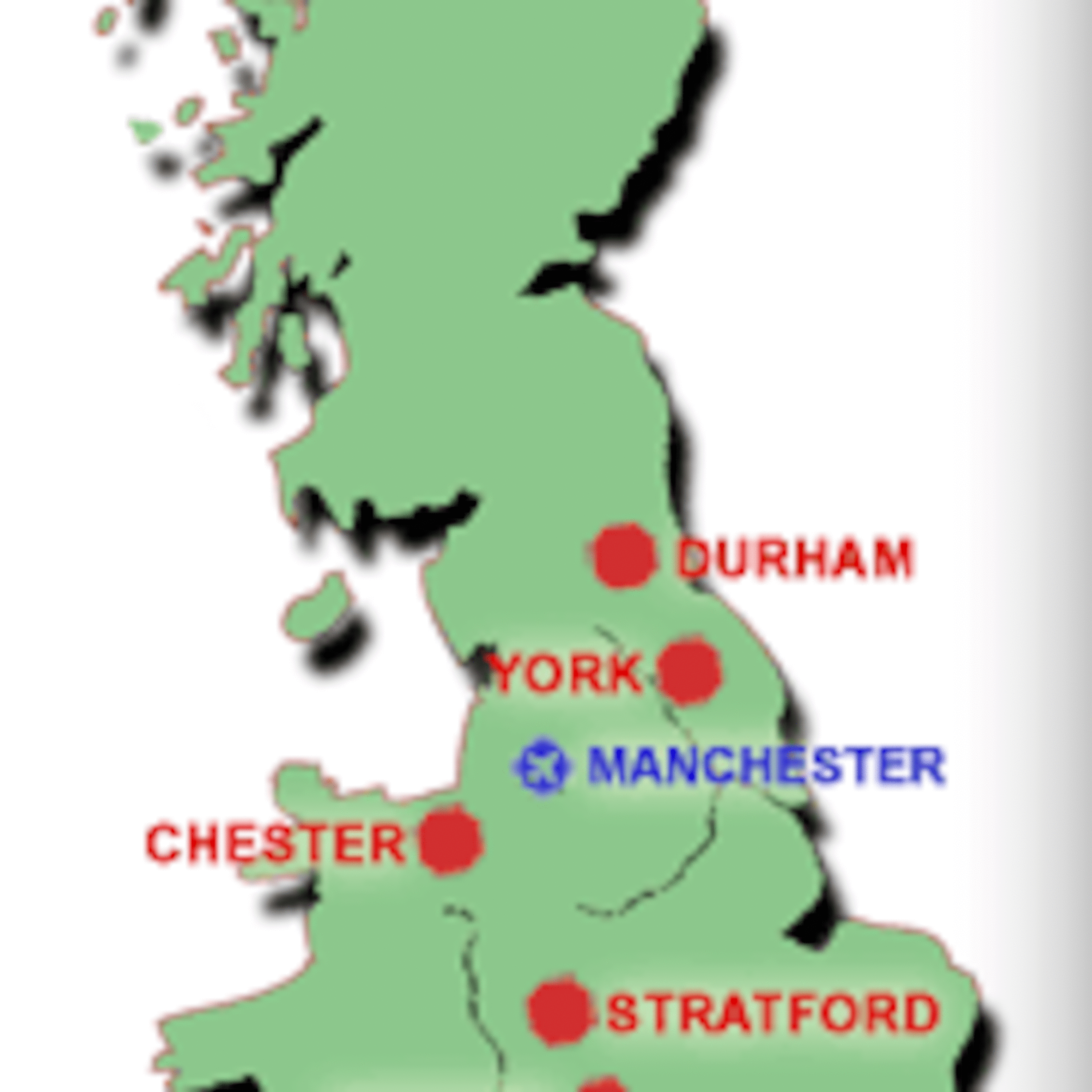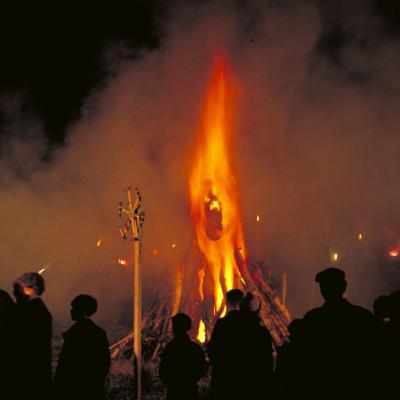Discover Alan Palmer's Language Chat podcasts
Alan Palmer's Language Chat podcasts

Alan Palmer's Language Chat podcasts
Author: Alan Palmer
Subscribed: 4Played: 71Subscribe
Share
Description
MY E— MAIL alan_r_palmer@hotmail.com
Bonjour, Guten Tag, Buenos dias, Bom dia, goedendag,
你 好, Jó napot......
I love learning languages and in discovering all the opportunities that the Internet gives us to develop our language skills.
I will post mostly in English, but don't be surprised if some of my podcasts are in other languages...
Please leave feedback if you have time - it's great to receive it
I might see you on www.livemocha.com or MSN
Your chathost Alan (November 2008)
Bonjour, Guten Tag, Buenos dias, Bom dia, goedendag,
你 好, Jó napot......
I love learning languages and in discovering all the opportunities that the Internet gives us to develop our language skills.
I will post mostly in English, but don't be surprised if some of my podcasts are in other languages...
Please leave feedback if you have time - it's great to receive it
I might see you on www.livemocha.com or MSN
Your chathost Alan (November 2008)
66 Episodes
Reverse
Hello everybody,
This is the last article I will put on this website as it is full!
My new site is:
www.language-explorer.co.uk
See you there!!
Bye
Alan
Hello again
Today I want to make a suggestion about how we can make a decision on our language skills.
People say “I am a learner of English,” “ I am learning French”, “I learn Italian” etc
This means that we think of ourselves as “learners” , “students” “pupil”
Then people may say:
“I am a beginner of Chinese”
“I speak some German”
“I can get by in Russian”
All the time we make these sorts of statements to other people, particularly native speakers, we make a judgement of our ability and class ourselves as a “learner”.
I want to suggest that we think of ourselves as both learner AND speaker. This way we can make a judgement in a different way which I believe will help us improve and enjoy language.
For example
I would say that I am 80% speaker of French and 20% learner
I would say that I am 60% speaker of German and 40% learner
I would say that I am 10% speaker of Chinese and 90% learner
I would say that I am 5% speaker of Spanish and 95% learner
This rating changes as we feel we know more and are confident in speaking.
Even as a native speaker of English I would also say that I am a learner
I think I am maybe 98% speaker of English and 2% learner. This is because I learn new phrases and words in English as I learn new things about my language or as new words come into the language. For example I did not know the word “Podcast” two years ago, but now I use the word a lot.
These figures need not be very accurate – they are just a way of judging our language skills. My idea is that we rate our speaking to learning depending on our own feelings and attitude to the language
I believe the more we tell ourselves we can call ourselves a “speaker” – even if the percentage is quite low, the more we will feel proud, enjoy speaking as well as learning and make great progress.
Bye for now
Be good be happy
Hello everybody
Today I want to talk about an idea for learning I call "Relaxing Challenges"
Remember when you were a child and you liked to play? Sometimes you dared yourself to try things: climb a tree, make a snowman, build a sandcastle, catch a ball. Each of these sort of things were a physical challenge. Some other things were mental challenges: playing chess, making a jigsaw, drawing and painting.
Learning a language is a big challenge. It is a huge undertaking; building up vocabulary, pronunciation, writing a text, reading a book, listening to speech and also speaking ourselves are all different challenges with language learning.
When I refer to a "relaxing challenge" I don't mean having a rest. I mean setting ourselves a small challenge with a relaxed mind, but with an energetic and enthusiastic intention.
For a language learning "relaxing challenge", we can think of something to do with the language we are learning that challenges us for a short while, but doesn't tire us out completely.
Some examples:
Reading a passage quickly to see how many words we know
Speaking a text to see how well we can pronounce it
Seeing if we can learn 5 new words a day
Try singing a song in the language
Try phoning or e-mailing someone and speak about a subject you are not very familiar with
Listen to a foreign radio station to see how many words you can understand
Ask a friend for their opinion on how they think you speak
All these ideas and many more are a way of us using the language or practicing and pushing our knowledge and skill further....but without worrying. Like we did when we were a child.
We didn't climb a tree to worry about falling
We didn't build a sandcastle to worry about the sea washing it away
We didn't worry about dropping a ball sometimes
We can put this sort of attitude also to language study. I do not mean act like a child, I mean be "childlike" in our way of challenging ourselves to do something which excites us about language and relax after, safe in the knowledge that even if we did not do things so well, at least we had a try and enjoyed the challenge
Be good be happy
Bye for now
Hrllo everyone
I am back after quite a long absence. I had problems with my home internet connection.
Here is something new, a German/English videocast
See what you think
Bye for now
Alan
I hope you like this podcast about Punch and Judy. A famous traditional puppet show in England.
Bye for now
Alan
China, the homeland of tea
It is universally acknowledged that China is the original tea-growing area, as well as the first country to grow, produce and drink tea.
In the Song (960-1279) and Yuan (1271-1368) Dynasties a popular custom was tea appraising. Over the long history of drinking tea, a special and simple Chinese tea culture came into being. Drinking tea was not only for quenching thirst or for enjoyment, but also for the promotion of friendship and mutual understanding. Folk customs of drinking tea reflected the ancient Chinese people's great interest in tea culture.
(to appraise – to value, to judge) to quench- to satisfy (mutual – common)
People often used tea as a betrothal gift; for it could not be "transplanted." After accepting tea as a betrothal gift, a girl could not capriciously change her decision to marry her fiancé.
Betrothal – promise of marriage capricious – impulsive - reckless
Entertainment of guests to tea is the most fundamental social behavior in the Chinese people's contacts with each other. When a guest comes, the Chinese will offer him or her a cup of tea to express friendship.
Fundamental –basic, original
China is the home country of tea. Before the Tang Dynasty (618-907), Chinese tea was exported by land and sea, first to Japan and Korea, then to India and Central Asia and, in the Ming (1368-1644) and Qing (1644-1911) Dynasties, to the Arabian Peninsula. In the early period of the 17th century, Chinese tea was exported to Europe, where the upper class adopted the fashion of drinking tea. Chinese tea, like Chinese silk and China, is an outstanding contribution to the world's material and spiritual civilization.
Adopted – take on
China is the homeland of tea. It is believed that China had tea-shrubs as early as five to six thousand years ago, and human cultivation of tea plants dates back two thousand years. Tea from China, along with her silk and porcelain, began to be known over the world more than a thousand years ago and has since always been an important Chinese export. At present more than forty countries in the world grow tea, with Asian countries producing 90% of the world's total output. All tea trees in other countries have their origin directly or indirectly in China. The word for tea leaves or tea as a drink in many countries is a derivative from the Chinese character "cha." The Russians call it "cha'i", which sounds like "chaye" (tea leaves) as it is pronounced in northern China, and the English word "tea" sounds similar to the pronunciation of its counterpart in Xiamen (Amoy). The Japanese character for tea is written exactly the same as it is in Chinese, though pronounced with a slight difference. The habit of tea drinking spread to Japan in the 6th century, but it was not introduced to Europe and America till the 17th and 18th centuries. Now the number of tea drinkers in the world is legion and is still on the increase.
Derivative – taken from, original legion – great many
Hello everybody.
Alan here. Thanks for listening to my podcast.
www.alanlancs1.podomatic.com
Today I want to talk about some of the difficulties with English pronunciation.
There are certain letters or combination of letters that are often difficult for people learning English. I want to demonstrate some of these difficulties and ways to help your pronunciation sound more English.
Firstly, I must say that I speak with a northern English accent and as such, my English pronunciation is a little bit different to London English or American English.
So let’s start with some vowel sounds. A E I O U
In English, we cannot just read word and know how it is pronounced.
Take the word “right” for example. The “righ” is pronounced like the word “rye” or the “ri” in the word “sterile”
So we must always learn the correct pronunciation from teachers, recordings or from dictionaries that use the International Phonetic Alphabet (IPA)
So, which are the most common sounds that can often be pronounced differently by people learning English, than the pronunciation used by a native English speaker?
This depends on the nationality of the person learning English I think.
Many people who speak other European languages sometimes pronounce “e” as “ee” ( as in “veeseet” instead of visit) and “a” as “eh” ( “ehpple” instead of apple) However, sometimes the sound of “e” is “ee” and the sound of “a” is “eh” as in the word “eat” and the word “any”.
For those of you who speak European languages, try saying this: “ When I visit my mother, if she has any, she always gives me an apple to eat because she says it does me good to eat fruit”
People who speak Chinese (as a native language) often mistake an “l” sound for an “r” so “right” sounds like “light” and sometimes they add another syllable to a word when there isn’t one. As in for example the words “and” which becomes sometimes “and-a” and “is” becomese “is-a”
So for those of you listening who are Chinese, try saying this:
“I know when I have the right light for reading, it is when I can see the text and the text is clear to see”
English vowels are often pronounced as diphthongs which sound like two vowels together
Bay for example is spoken like “bay-ee”
Day is spoken like “day-ee”
Go is spoken like “goh-u”
Fine is spoken like “fye-een”
Sometimes English people pronounce some words a little different to Americans:
“Stupid” (English)
“ Stupid” (American)
Take care with these sounds:
“th”
To get this sound (which I think is very difficult) is put the very tip of your tongue touching your top teeth very softly and the allow a little air out and pull your tongue back quickly.
For the other “th” sound as in: “the end” for example, just allow your voice to sound at the same time
Try saying: “the thing that I think is that their thoughts are thoroughly thought-out at the end”
“r”
To get the “r” position correct. Curl your tongue back a little and let your tongue go flat as you say a word.
Try saying this: “Roger ran after the rabbit and really regretted not reaching it”
“w”
To get the “w” sound try putting your lips to say “oo” like “food” and as you say the “w” let your jaw slightly drop – but only a little bit.
Try saying this: “when I went with my wife to Wales, we wanted to go walking but it was a wet weekend”
“v” this is sometimes difficult for Spanish speakers.
To get the “v” sound put your top teeth on your bottom lip softly say the “v” and lower your jaw slightly – but only a little bit
Try saying this: “vans are very wonderful fun vehicles”
I have put a “w” word and an ‘f” word there for you to show you the difference between “v” and”w”
Try to keep the rhythm of the speech in a similar way to English peoples’
The way to do this is to listen for the word intonation (stress) on the words and copy them.
Without intonation, here is a sentence:
“This sentence shows where we put stress on words when we speak”
With intonation
“This sentence shows where we put stress on words when we speak”
Can you hear the difference?
Finally, for this podcast, never be afraid to speak a little bit slower, because this gives you more time to say the words and think a little before you say anything. This is very useful when reading out loud.
To give you an example, which do you think sounds better?
I like to show you how to speak English better, and sometimes it is better to speak a little more slowly to make the language sound clear to listeners. It is fine, no English person should ever criticise you for doing this”
So you can try to break up the sentence a little bit….
So, I hope you find this podcast useful for your pronunication.
The important thing is never to worry about pronunciation. The most important thing is to be understood. In fact many foreign accents sound nice to English people.
Bye for now
Be good be happy
Hello everybody.
The transcript for this is the next podcast. You can download it as a PDF text document.
Bye for now
Alan
Hello everybody. You can download the transcript for this podcast by clicking "download" on the next podcast ***TRANSCRIPT***
PDF format
Take care
Alan
Hello everybody. It’s been a while since I made a podcast. Today I wanted to give you some suggestions on how to start conversations with native speakers of English, or if you cannot find a native speaker to speak with, then try them out on anyone else you know who will speak English with you.
Good luck!
Take care
Be good be happy
Conversation starters…for students of different levels
Beginning students
“Please tell me about your family.”
“What do you do? (student, worker, etc.) Where?”
“Where do you live? Do you like it there? Why or why not?”
“What did you do yesterday?”
“What do you plan to do tomorrow?”
“Please tell me how to get from here to your house (or the university or some hotel etc.)”
“What do you like to do with your free time?”
Intermediate students (can also use the above questions)
"What did you do yesterday, from the time you got up to the time that you went to
bed?”
“Why did you choose to study _______?”
“What would you like to be doing five years from now?”
“Tell me about a time when you travelled somewhere.”
“Please tell me about your favourite restaurant.” (favorite in USA)
“Please tell me about your favourite book.”
“Please tell me about your favourite movie.”
“Please tell me about your favourite shop” (store in USA)
“Please tell me about your best friend.”
“Please tell me about an important moment in your life.”
“Please tell me about your mum.” (mom in USA)
“Please tell me about your dad.”
“Please tell me about your brother (or sister or cousin or etc.).”
“What kind of books do you like?”
“What kind of films do you like?” (movies in USA)
Advanced students (can also use the above questions)
Note: Some of these should only be used with speakers of the same sex.
“Please use a lot of detail and tell me what you did yesterday between (for example) 2:00 p.m. and 3:00 p.m.”
“What qualities (or characteristics or traits) do you like in a friend?”
“What was your childhood like?”
“What is your first memory?”
“Please tell me about the happiest day of your life.”
“How important is religion in your life? Why?”
“How important is politics in your life? Why?”
“What is your opinion about….? (some major world event going on now)
“In your opinion, what makes life worth living?”
“What is the biggest mistake that you have ever made?”
“What is your most embarrassing moment?”
Guy Fawkes Day (5th November)
This is generally known as "Bonfire Night", and marks the failure of the "Gunpowder Plot" in which Guy Fawkes (the leader of the conspirators) and his fellow conspirators planned (in 1605) to blow up (with gunpowder) the Houses of Parliament in London.
Once, it was common for a family with children to have its own bonfire. But now for safety reasons, the bonfires are usually organized by local councils or communities,
Two essential ingredients for the occasion are a “Guy” ( a figure of a man made of (wood)sticks and old clothes put on top of the bonfire and plenty of fireworks of all types for the crowds to enjoy.
Vocabulary:
Bonfire = big (good) fire made from wood and built on a field or in gardens
Guy Fawkes – the man that lead a conspiracy to blow up the parliament in London
Conspirators – people who make a plan to do something like a crime
Gunpowder – explosive used in fireworks – which is why the festival has fireworks to “celebrate”
Council – local government
Houses of Parliament – the building where the government of Britain is housed.
Essential ingredients - the most important things necessary
Figure – model of a person (in this case, the same size as a man)
The Donkey
I saw a donkey
One day old
His head was too big
For his neck to hold;
His legs were shaky
And long and loose,
They rocked and staggered
And weren’t much use
He tried to gambol
And frisk a bit
But he wasn’t quite sure
Of the trick of it
His queer little coat
Was soft and grey,
And he curled his neck
In a lovely way.
He looked so little
And weak and slim
I prayed the world
Might be good to him.
Anon.
I explain a little more about using intonation in English
Hello everybody
I thought that today you might be interested in listening to English intonation.
English has two main "tones": a "rising" tone for questions, and a "falling" tone for statements and commands.
Father: "Are you not going to play with your friends today?"
Son: "No, I'm not" (slight falling sound on "not")
Father: "Why not?"
Son: "Because I feel ill"
Father: "Oh dear! what is wrong?
Son: "I fell over and banged my head and I have a headache!"
Father: "Ok, I think you need to rest!..."
question sound: "today?"
statement: "I'm not"
question: why not? (sympathetically)
statement "I feel ill"
question: "what is wrong?"
statement: "I have a headache"
command: "you need to rest!"
This dialogue shows how we use the falling and rising tones for conversation a bit clearer.
I hope you like my chatcast.
It's a bit longer than usual and I'll put a text here in a couple of days.
Be good be happy (BGBH)
Alan
How to make a perfect English cup of tea
http://www.bellaonline.com/articles/art39370.asp
Guest Author - Hellie T.
One of the things you need to be able to do is to sit down and enjoy a really good cup of tea.
As a tea drinker myself I drink tea at breakfast, eleveneses, lunch, afternoon tea and quite often in the evening as well! This gives you plenty of opportunities to enjoy a cuppa in your garden.
To make a really delicious cup of English tea - just follow the instructions below.
Please note that if your tap water is heavily chlorinated it will make the tea taste horrid and you will need to filter the water before boiling it.
Make a Pot of Tea to drink in your English Garden
· Put freshly drawn cold water into the kettle – never use water that has been boiled more than once – and make sure your kettle is kept clear of scale
· Boil the kettle.
· Pour a little boiling water into the empty tea pot – swirl it around carefully to warm it up. Pour away this water that you used to warm the pot.
· Put tea into the teapot - one teabag for each person or one rounded teaspoon of loose tea for each cup needed. It is better to add one extra bag or teaspoon “for the pot” to get a really good flavoured cup of tea. I recommend you use a tea generally called English Breakfast tea. A tea pot taking 20oz is about right for 2 people
· When the water is boiling pour it directly onto the tea.
· Then leave it to brew for a few minutes. 3-5 minutes is best and a tea cosy helps the tea stay piping hot whilst brewing.(Why not make one decorated with English garden flowers?)
· In an English Garden you will be sitting at your wooden table using a china teapot and china teacups.In teacups - the milk should always go in the cups first – because you have made the tea in the pot – it is different when making tea in a mug - see below!) Semi- skimmed milk tastes the best, never put cream or powdered milk in tea because they completely spoil the flavour.
· Pour the tea into the cup, don’t forget to use a strainer if you are using leaf tea.
· If required add a teaspoon of fine white sugar - never ever use brown sugar or honey! – stir and take into your garden carefully. Sit by your lavender or English Garden feature and sip the tea savouring the taste and enjoying your garden at the same time.
If you are making tea in mugs it is important that you warm the mug before you add the tea, swirl and empty.
Put in the tea in and pour the freshly boiled water onto it.
Never put the water in first and add a tea bag – this will make the tea taste disgusting!
Don’t put the milk in first either or prod or stir the bag whilst it is in the water!
Just wait about 2 minutes before you take out the teabag.
Then is the time to add the milk to taste.
Now you can drink your tea!
Here is my version of "L'auvergnat" (Song for the person from the Auvergne)
It was written and sung by Georges Brassens
It is ano old French song - and I like it a lot
I hope you like my version
Bye for now
Alan
If you want the English words - just e-mail me at alan_r_palmer@hotmail.com
Hello everybody,
I have had some nice feedback from visitors to my site. I have realised that to help people with English, it is sometimes very useful to talk about cultural activities.
Today I want to talk about small markets we have in some towns in England. Today, we went to a town called Skipton, near where I live. We visited a small market. This was called a “Farmers’ market”. It is where local produce can be sold. It is an alternative to supermarkets which are the shops where most people go shopping for groceries.
However, these markets give people the chance to buy some produce made locally by private business owners and which can be very good – although more expensive that supermarket equivalents.
The produce we saw today was: cheese, meats, fruit and vegetables, herbal oils, sweets (called fudge) and not just food, there was also pottery and jewellery.
Also in the town was a European market. These are sellers from France and Germany. They sell speciality products also, but prices are more expensive – because they have to travel from France and Germany and bring their products with them. With high fuel prices, it perhaps makes their products a little too expensive.
At the European market we saw: special German beer, French cheese, biscuits from Brittany (a region in France) many types of olives and special salami sausages with meat from wildboar and wild deer.
It is interesting to have the chance to visit these markets. They are held in quite a number of towns around the country, usually on a Saturday or Sunday.
Of course, many towns have weekly markets. Skipton’s weekly market is held each Saturday and the stallholders put their stalls along the main street. This market sells food, clothes and many other products.
Take care
Be good be happy
Bye for now
Here's a guitar tune I recorded today.
I hope you like it
It is called "Bubble and Squeak"
This is actually a food we eat in England:
Bubble and squeak
From Wikipedia, the free encyclopedia
http://en.wikipedia.org/wiki/Bubble_and_squeak
Bubble and squeak (sometimes just called bubble) is a traditional English dish made with the shallow-fried leftover vegetables from a roast dinner. The chief ingredients are potato and cabbage, but carrots, peas, brussels sprouts, and other vegetables can be added. It is traditionally served with cold meat from the Sunday roast, and pickles. Traditionally the meat was added to the bubble and squeak itself, although nowadays the vegetarian version is more common. The cold chopped vegetables (and cold chopped meat if used) are fried in a pan together with mashed potato until the mixture is well-cooked and brown on the sides.
Hello everybody
Alan here and welcome to www.alanlancs1.podomatic.com. And today I’m just speaking without a text.
Usually, as you know, I prepare a text. To make it easier for me and also easier for you to read as I say the same things as I’ve written.
But today I’m just doing a “chatcast” and what I mean by a chatcast is I just chat. I just speak about things I am interested in and hopefully you find it interesting too – well I hope so anyway.
So today I’m going to speak about reading in a different language and just recently I was on holiday in France and I was reading some French newspapers and French books during the holiday and sometimes I find the text very difficult.
In fact, very often I find it very difficult to follow the text as I would do in English for example. So I was trying to find was as in how to improve my reading skills and firstly I thought to myself how do I improve my understanding of the text?
So I came with an idea which I seem to think works quite well and so I’d like to share this idea with you.
The idea is that to understand the text better, maybe read it more than once, everyone says that of course. But I started to read each sentence more than once. Just read a sentence, then re-read a sentence quickly.
So, hopefully it would not take much more time to read a text than it would do if you didn’t do that, because usually people read a text in other languages rather slowly, but my idea is to read the text quickly, but read it twice. So read each sentence twice quickly rather than one sentence read slowly to try and understand it.
See if you like this idea it may help you. It certainly is helping me to read in other languages. I think reading each sentence twice helps us to understand it more because you are seeing the words twice.
So that is my idea for today – my weekend words for today and I hope you find this idea useful.
So, I’ll see you next time and be good be happy and I’ll see you again soon
Bye
Hello everybody,
I’m back from my holidays in France.
Today I want to talk about when people speak fast and what you can do to help understand what is spoken.
I think listening is the most difficult skill of the four skills in language learning
For example:
With writing, we have the chance to decide what we want to write and spend time on this.
With speaking, we have the chance to decide what we say
With reading, we usually have the chance to read the text many times if we want to.
I don’t mean that the other skills are easy, they are often very difficult. What I mean is that with listening to conversational speech we often have no control over it.
To explain more details:
Often the speaker has an accent
We cannot control the speed of the words (unless we deliberately ask the speaker to slow down – and very often we can’t do that)
Maybe the speaker is using slang or expressions – sometimes dialect words
Maybe more than one person is speaking at the same time, for example at a dinner table
Maybe the subjects being discussed are cultural, social or political – and these subjects can be difficult even in our own language.
So, what can we do to make it easier to understand spoken language?
I have some ideas that can help sometimes.
Listen for key words (important words that help understand what is being discussed)
Listen for small pauses when people think a bit more what they want to say
Listen carefully to the stressed words (this is useful in English because English words have stress on the pronunciation
If you don’t understand something and it is possible to ask for more information, then ask a question. Instead of “could you say that again please?” , say “oh, was I correct in thinking you said this…….?”
If you listen to English radio, then be careful not to listen to something very complex or you will think you understand nothing, when it is mostly because the radio speaker is using vocabulary that you don’t yet know.
The most important thing to remember is not to worry –keep relaxed. The reason I say this is because I know from experience that many people can communicate well with very few words - providing people are relaxed and friendly.
To demonstrate, I’ll read a text very fast and then show you why it is perhaps difficult
From today’s “Daily Mail”
Teenager Holly Herdman clearly hadn't heard that it's not a great idea to mention you're having a party on a social networking site. And it is especially unwise if you have been left in charge of the house while your parents are away. What she claimed was intended as a drink with a few friends ended with a mob of teenage youths running riot through a small market town.
http://www.dailymail.co.uk/news/article-1047373/Couple-say-sorry-neighbours-newspaper-advert-daughter-holds-party-leaves-street-like-war-zone.html
Key words: Teenager Holly Herdman not a great idea - having a party -social networking site- unwise left in charge parents away – claimed –drink with a few friends – ended up – mob of youths – running riot – through town
If you listen again now to a slower version, you can see that the language is complex and only 70 words.
Many news items use lots of descriptive words and the language puts a lot of information in a few sentences. This is difficult to understand if it is spoken fast as much information is there.
So, knowing more about why listening is difficult helps us to think of ways we can improve our listening skills
Be good, be happy
















